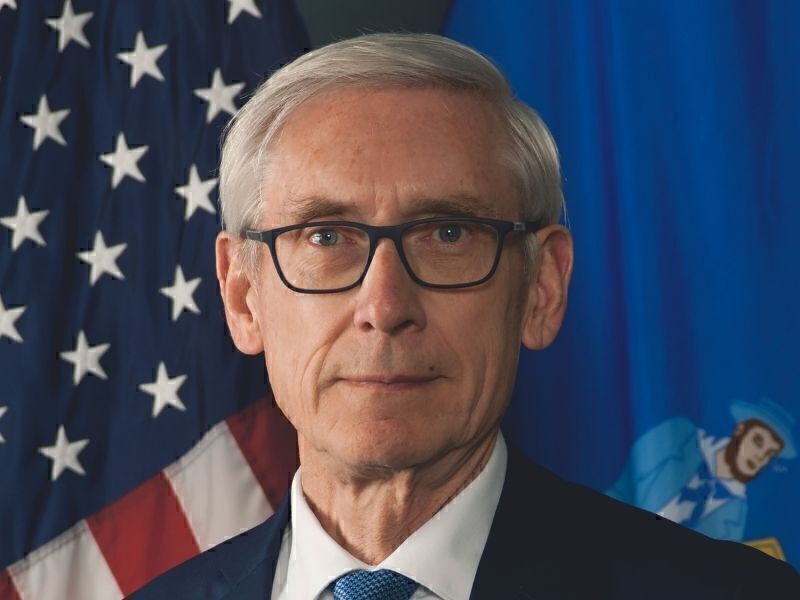MADISON — Gov. Tony Evers today delivered his weekly radio address highlighting the 2025-27 bipartisan pro-kid budget he signed into law last week that invests in Wisconsin’s kids, families, and communities statewide.
Gov. Evers, who began 2025 by declaring it the Year of the Kid in Wisconsin, has been clear from the beginning of this biennial budget process that his top priority in the 2025-27 Biennial Budget would be to pass a pro-kid budget that makes meaningful investments in Wisconsin’s kids at every stage and every age, from early childhood to K-12 to our higher education institutions. Delivering on this promise, last week, Gov. Evers announced a bipartisan budget agreement after months of conversations and negotiations with legislative leaders, and a few days later, he enacted the bipartisan 2025-27 Biennial Budget, securing significant investments in child care, K-12 schools, and the UW System statewide in 2025 the Year of the Kid.
As enacted, the 2025-27 Biennial Budget approved by the governor includes:
- Nearly $1.4 billion in spendable revenue for K-12 schools, with the largest increase to the special education reimbursement rate in state history;
- The largest increase to the UW System in nearly two decades;
- Over $360 million to support Wisconsin’s child care industry and help lower child care costs for working families, a third of which is in direct payments to providers;
- A tax cut for working and middle-class families, bringing tax cuts enacted by Gov. Evers since he took office to over $12.6 billion;
- Lowering out-of-pocket energy and utility costs for Wisconsinites by eliminating the sales tax on household energy bills, saving Wisconsin households over $178 million over the next two years;
- Supporting healthcare access, especially in rural communities, and continuing funding for BadgerCare;
- Continuing support for Wisconsin farmers and producers through mental health services for farm families, food security initiatives, producer-led watershed protection efforts, and bolstering the supply chain;
- Fixing Wisconsin’s roads and bridges and making sure the state’s infrastructure meets the needs of a 21st-century workforce and economy, including three percent increases in each year for General Transportation Aids and $150 million to repair rural roads and bridges;
- $14 million investment in local communities across the state through municipal service payments to ensure local communities have the resources they need to meet basic and unique needs alike; and
- Funding to support the operations of the Wisconsin Veterans homes and a five percent increase for County and Tribal Veterans Service Offices.
Gov. Evers also exercised his broad, constitutional veto authority to partially veto aspects of the budget that were outside of the bipartisan budget negotiations. Highlights of the 2025-27 Biennial Budget and Gov. Evers’ line-item vetoes are available here.
RADIO ADDRESS
Hey there, Wisconsin! Governor Tony Evers here.
I made a promise to always work to do the right thing for Wisconsin, and I believe working together to find common ground so we can pass a bipartisan budget that reflects the will of the people of this state is part of keeping that promise.
That’s why last week, after months of negotiations with Republican legislative leaders, I was proud to sign a bipartisan state budget into law.
Our bipartisan budget invests in our K-12 schools, providing the largest increase to the special education reimbursement rate in state history and the largest increase to the UW System in nearly two decades.
We’re also investing over $360 million to support Wisconsin’s child care industry, a third of which is direct payments to providers.
And we’re providing tax cuts for working and middle-class families. This includes lowering out-of-pocket energy and utility costs by eliminating the sales tax on household energy bills.
And while federal leaders are gutting basic needs programs like food assistance and healthcare, our bipartisan budget supports healthcare across the state and invests $10 million for food security efforts.
We’re also continuing our work to fix the darn roads, support our farmers and producers, and invest in local communities statewide.
Simply put: this is a bipartisan budget that is a win for Wisconsin kids, families, and communities.
At the same time, this budget is also a reflection of bipartisan compromise—that means everyone gets something they want, and no one gets everything they want.
While this budget looks drastically different than the budget I proposed, I believe most Wisconsinites would say that compromise is a good thing because that is how government is supposed to work.
Wisconsin is a purple state. At the end of the day, it is my job as governor to get things done, and it’s my job to be a governor for the whole state.
While there is much work ahead, during these divisive times, we proved that, here in Wisconsin, we still believe in being able to work together and get things done.
Thank you.
Last Update: Jul 11, 2025 1:52 pm CDT

















